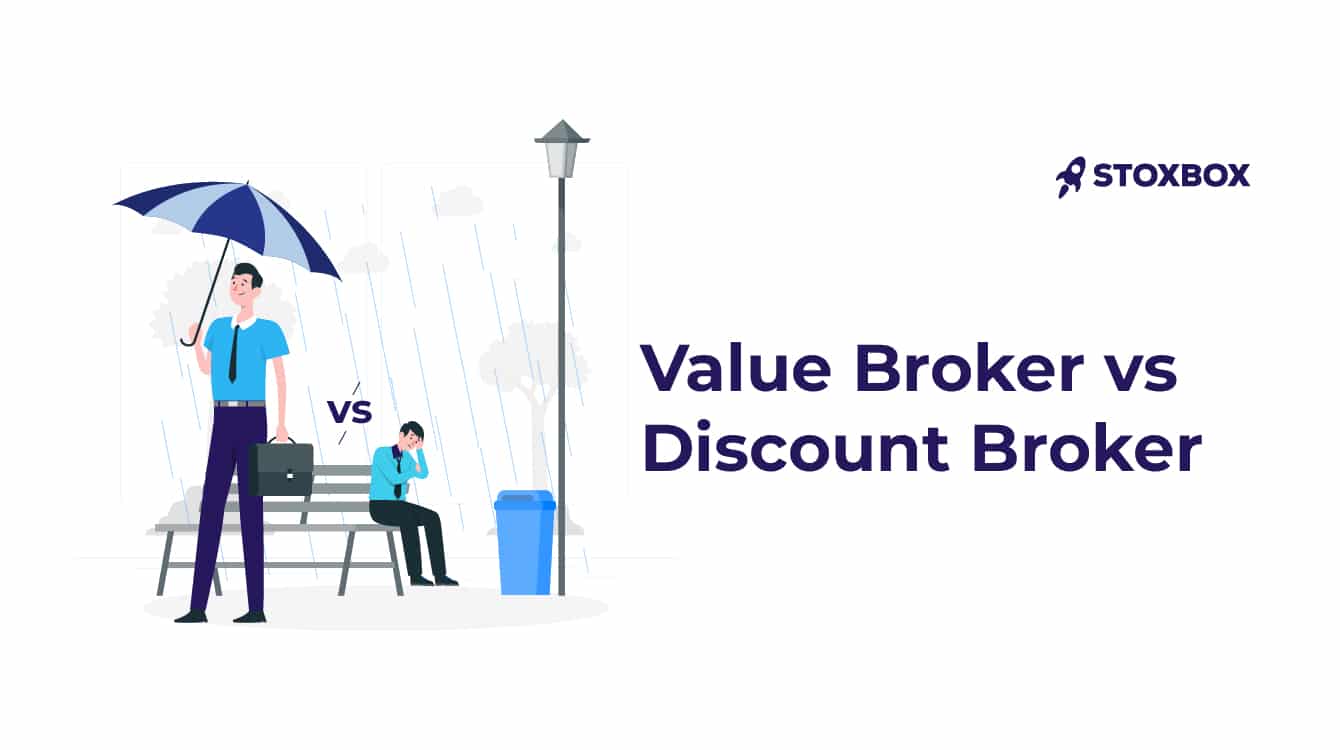Stock Trading: All You Need To Know About Differences Between Value Broker and Discount Broker
What is the difference between a value broker and stock broker
The phrase ‘high risk, high returns’, used often in finance, is very true of stock investments— while they yield higher returns than some of the alternatives, they can also be quite risky. It is often this risk that discourages investors from investing in them. The rise of new-age fintech platforms and value broking services is good news for investors as they enable them in making informed decisions about stock market investments.
If you are wondering what the difference between value broking and traditional discount broking is, look no further as we provide a detailed breakdown of what these services entail.
Discount broking v/s Value broking
The key difference between discount broking and value broking lies in the kind of services they include. Typically, discount brokers ensure the purchase and sale of stocks and other assets for lower commission costs. They don’t usually focus on supporting the financial literacy of investors.
They may offer some foundational information and/or research about investing but often don’t provide need-based financial guidance or planning to the investor. The financial tools and research available to discount brokers also tends to be limited.
On the contrary, the purpose of value broking is to provide comprehensive information and guidance to investors to achieve their financial goals. The channel of communication between the broker and investor is kept active through live trading, training, access to market instruments etc. Value broking provides investors the opportunity to seek financial advice that is backed by research and data.
Value brokers and discount brokers can also be differentiated through the brokerage they charge. Discount brokers are known for offering affordable trading choices with minimal commissions, making them the first choice for cost-conscious investors. The value broking model does not involve trading charges or platform fees. Instead, it focuses on earning by providing financial insights, research and flagship products. Investors are free to choose either service, depending on their budget and investment know-how.
StoxBox is your destination for value broking services. Here, the transaction platform is free to use so that investors benefit from detailed research insights. ‘StoxCalls’ is another service, where you can discuss your investment goals with professionals from Stoxbox to help you make well-informed decisions.
To summarize, discount broking is suitable for those investors who are financially knowledgeable and active in trading to make their own investment decisions and want low-cost trading solutions. Value broking is the best fit for beginners to stock investing who require mentorship to guide their decision-making.
You might also Like.
Union Budget 2026-27 Impact on Sectors
Edit Announcement Companies Impact Rare earth permanent magnet manufacturing programme...



